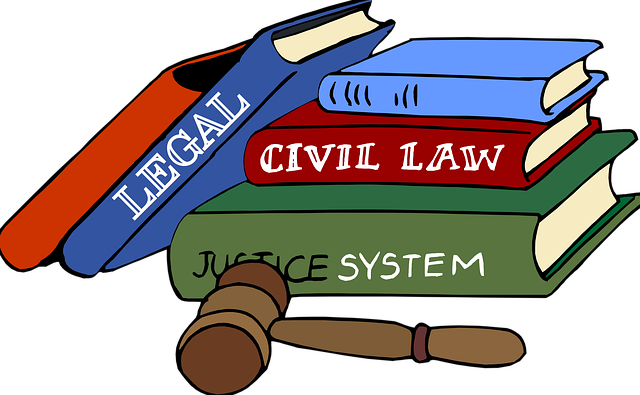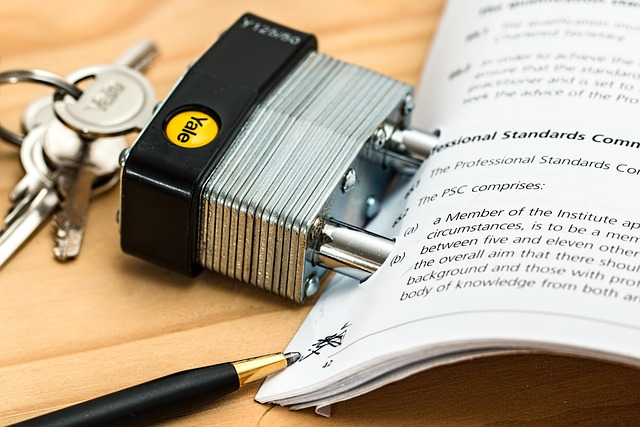Probate involves managing a deceased individual's assets through legal processes, including identifying property, valuing debts, and distributing the estate according to the will or state laws. Complexities arise from will disputes, asset claims, and distribution questions. Legal expertise is crucial for navigating these challenges, ensuring compliance with state regulations, and guiding clients through hearings and document drafting. Engaging experienced probate attorneys facilitates a smooth estate distribution, minimizing disputes and delays, and providing peace of mind during an emotional time. Strategic legal guidance ensures assets are divided fairly among beneficiaries according to the testator's wishes.
Probate can be a complex process, often fraught with legal complexities that threaten smooth estate distribution. Understanding these intricacies is crucial for ensuring fairness among beneficiaries. This article explores how legal expertise serves as a beacon, guiding through the maze and facilitating efficient estate distribution. We delve into common probate issues, effective dispute resolution strategies, and the pivotal role of legal professionals in estate administration, ultimately emphasizing the importance of legal means in upholding fairness and compliance.
- Understanding Probate and Its Complexities
- Legal Expertise: A Key to Seamless Estate Distribution
- Identifying Common Probate Issues
- Strategies for Efficiently Resolving Disputes
- The Role of Legal Professionals in Estate Administration
- Ensuring Fairness and Compliance Through Legal Means
Understanding Probate and Its Complexities

Probate is a legal process that facilitates the transfer of a deceased person’s assets, including real and personal property, according to their will or state laws governing intestacy. It involves several complex steps, such as identifying and valuing assets, collecting debts and taxes, paying expenses, and ultimately distributing the estate among beneficiaries. The intricacies of probate can pose significant challenges, especially when there are disputes over will validity, conflicting claims to assets, or questions regarding the appropriate distribution of the estate.
Legal expertise is crucial in navigating these complexities. Attorneys specialized in probate law have a deep understanding of state-specific regulations and court procedures, ensuring that all legal requirements are met. They can guide clients through the process, representing their interests during hearings, and drafting necessary documents to facilitate a smooth and lawful distribution of the estate. This expert guidance is essential for resolving probate issues efficiently and minimizing potential disputes or delays.
Legal Expertise: A Key to Seamless Estate Distribution

Legal expertise plays a pivotal role in resolving probate issues and ensuring a seamless estate distribution process. When an individual passes away, their estate often faces various legal complexities, particularly if there is a will or multiple beneficiaries involved. Experienced attorneys specializing in probate law possess the knowledge and skills to navigate these intricacies, ensuring that the deceased’s wishes are respected and their assets are distributed according to legal requirements.
By engaging legal professionals, families can avoid potential disputes and lengthy court battles. These experts guide clients through every step of the probate process, from interpreting complex legal documents to handling tax matters and managing trust administration. Their expertise ensures that estate distribution is fair, efficient, and in line with applicable laws, providing peace of mind during an emotionally challenging time.
Identifying Common Probate Issues

Probate, the legal process of settling a deceased individual’s estate, often presents various challenges that require professional legal expertise to navigate. Common issues include disputes over will validity, inaccurate or incomplete documentation, complex asset distribution, and conflicts among heirs or beneficiaries. These problems can arise due to poor estate planning, missing or unclear instructions in a will, or disagreements between family members regarding the deceased’s wishes.
Estate distribution is a critical aspect that demands meticulous attention. It involves determining how the deceased’s assets, including real estate, personal property, and financial holdings, should be divided among beneficiaries according to the will or applicable laws. This process requires legal acumen to interpret complex documents, resolve disputes, and ensure compliance with legal requirements, ultimately facilitating a smooth transition for all involved parties.
Strategies for Efficiently Resolving Disputes

When it comes to resolving probate issues, efficient dispute resolution is key. The first step involves careful evaluation of the will and related legal documents to understand the testator’s intentions clearly. With sound legal expertise, professionals can identify potential disputes early on, which significantly streamlines the process. For instance, discrepancies in estate distribution often arise from misinterpretations or omissions in the will. A thorough review ensures that all assets are accounted for and distributed according to the testator’s wishes.
Strategic communication is another vital aspect. Engaging all interested parties in open dialogue helps alleviate tensions and identifies common goals. Legal professionals can facilitate these conversations, offering guidance on potential outcomes and alternative solutions. This collaborative approach often leads to mutually agreeable resolutions without escalating into lengthy and costly litigation.
The Role of Legal Professionals in Estate Administration

Legal professionals play a pivotal role in ensuring a smooth and efficient estate administration process, especially when it comes to complex probate issues. Their expertise is invaluable in guiding clients through the intricate web of legal requirements and regulations surrounding the distribution of an estate. With their knowledge of trust law, tax implications, and various legal mechanisms, they can navigate the challenges that often arise during probate.
These professionals are well-equipped to handle disputes regarding will validity, identify and address potential heir conflicts, and ensure that the intended estate distribution complies with legal frameworks. They offer a range of services from drafting legal documents, conducting thorough searches for assets, and managing tax obligations related to the estate. By leveraging their skills, families can find solace in knowing that the wishes expressed in a will are carried out accurately and justly, minimising potential disputes and ensuring peace of mind during an emotional time.
Ensuring Fairness and Compliance Through Legal Means

Ensuring fairness and compliance in probate matters is paramount for maintaining peace of mind for all involved parties, especially in light of the delicate nature of estate distribution. Legal expertise plays a crucial role in navigating these complex processes, guaranteeing that every aspect adheres to relevant laws and regulations. Skilled attorneys are adept at crafting strategies that promote transparency and equity, ensuring that assets are distributed according to the testator’s wishes while adhering to legal boundaries.
By leveraging their knowledge of estate law, legal professionals can identify potential pitfalls and proactively address them, thereby minimizing the risk of disputes or legal complications. This includes meticulous document preparation, careful asset valuation, and clear communication among all stakeholders. Such measures not only foster a sense of fairness but also streamline the probate process, allowing for a smoother transition during what can often be an emotional and challenging time for families.






